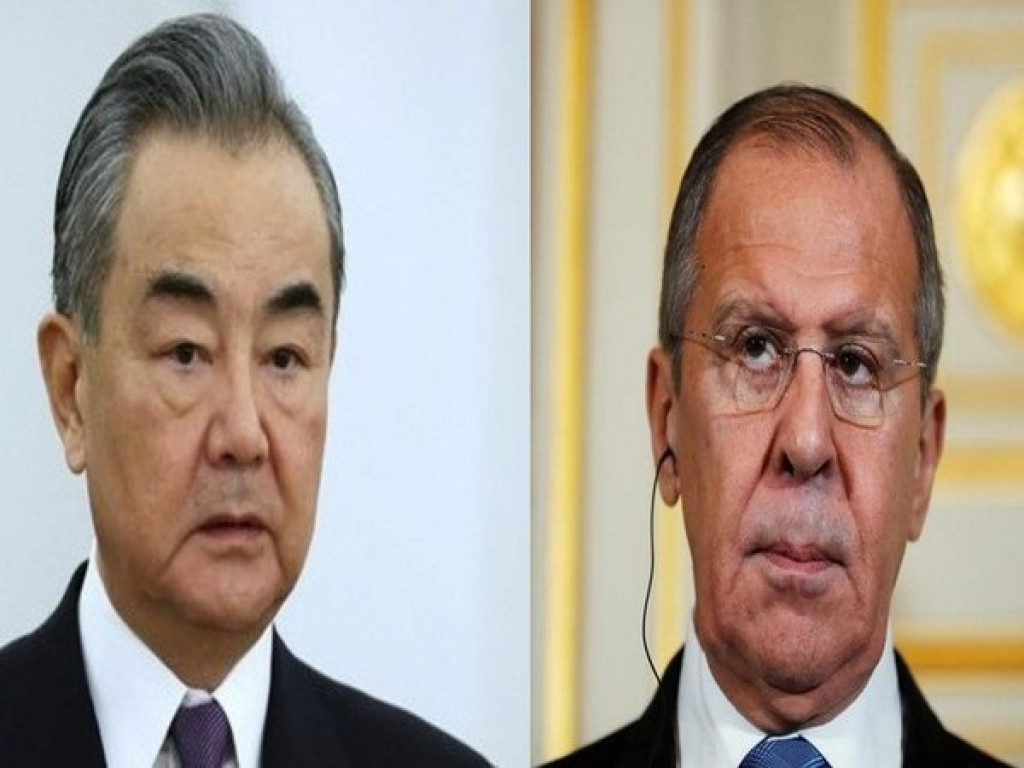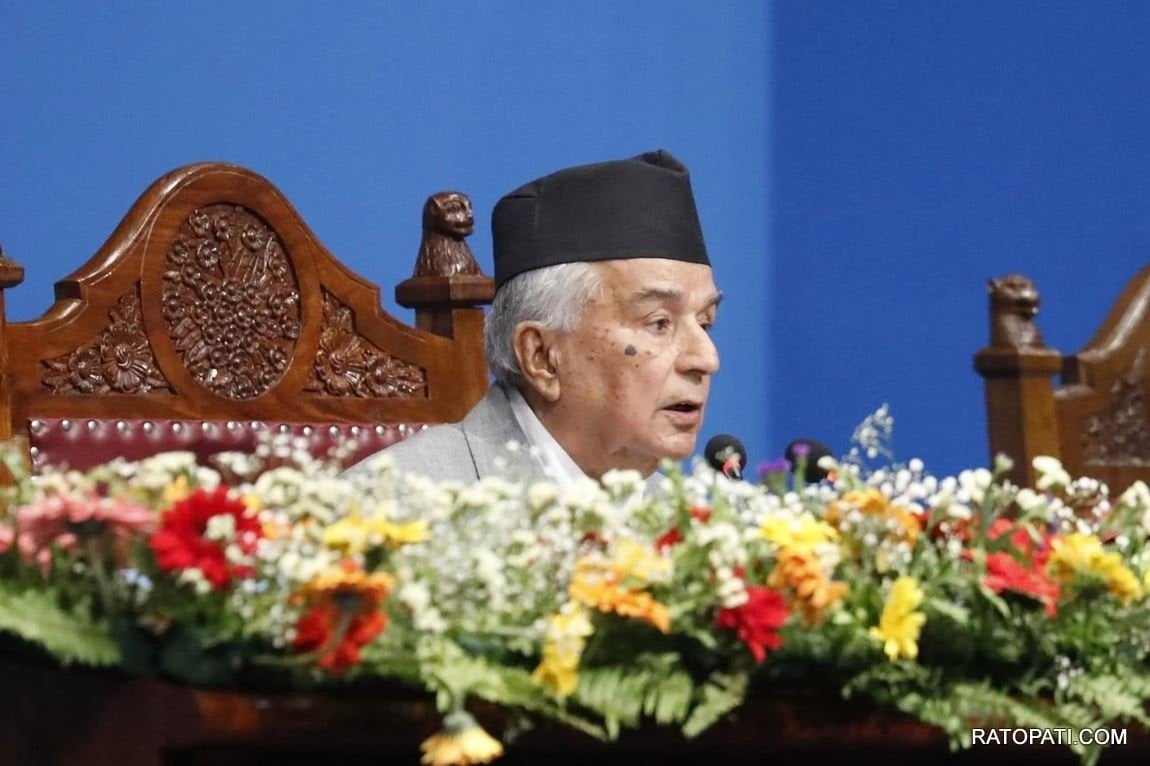
Oct 20: Vladimir Saldo said all Russian-appointed departments and ministries would cross the Dnieper river.
Some 50-60,000 civilians would also leave in an "organised, gradual displacement", he said earlier.
Ukraine has called on residents to ignore the Russian move.
The head of Kherson's regional administration said Russia wanted to take civilians hostage and use them as human shields. The transfer or deportation of civilians by an occupying power from occupied territory is considered a war crime.
In a separate development, Russia's Vladimir Putin said he had signed a decree imposing martial law on four Ukrainian regions, including Kherson, which Moscow annexed last month in a move rejected as illegal by the international community.
He told Russia's Security Council that it would give regional leaders additional powers to maintain social order and safeguard important facilities.
On Tuesday night, residents in Kherson started receiving text messages, urging them to evacuate immediately to avoid shelling of residential areas by Ukrainian forces.
The messages said transport across the Dnipro River would be available from 07:00 on Wednesday.
"They are told to evacuate because the evil Ukrainians are going to shell the city," one resident told the BBC, asking to remain anonymous.
"People are panicking because of propaganda."
Russian TV footage on Wednesday showed a number of people gathering near the west bank of the Dnieper. As they queued for boats, it was not clear how many were leaving.
But Ukrainian officials have questioned whether large numbers of people are actually being evacuated, suggesting that images of a crowd assembled by the river are largely for show.
Serhiy Khlan, an aide to the ousted head of the Kherson region, suggested the "deportations theatre" could be acting as cover for a much bigger Russian move: a complete military evacuation from the west bank of the river.
"I foresee the withdrawal of troops," he said, adding that he expected Russian forces to attempt to destroy the city after leaving.
Russia, he said, was planning to establish a new capital for the Kherson region at Henichesk, close to the Crimean Peninsula, adding that banks and offices related to the occupation of Kherson had already been evacuated.
One Kherson resident told the BBC's World Service that she was not going anywhere until Kherson was liberated by Ukrainian troops: "People are not panicking, nobody wants to be evacuated."
She said that Russian soldiers were now worried how they could survive in the city. "There are plenty of them here; they are dressed as civilians. We can see them - they are different to Kherson people. They walk in groups, their hair is cut short, they are dressed mainly in black."
Ukrainian officials have warned that this might represent the start of a forcible deportation to Russia.
In early September, the UN said there were already credible accusations of forced deportation of Ukrainian children from other Russian-occupied areas. Russia's ambassador to the UN, Vasily Nebenzia, called the allegations "unfounded".
As part of the decree, President Putin announced three additional levels of heightened security inside Russia.
The highest level applies to Russia-annexed Crimea and other areas near the border with Ukraine, such as the regions of Belgorod, Kursk and Krasnodar.
In these areas, there will be more security, possible evacuation orders and some restrictions placed on travel. Regional authorities will be given more powers to ensure measures are implemented, establish territorial defence and "mobilise" the economy for the war effort.
In Moscow and surrounding central and southern regions, regional authorities have the power to introduce similar, but less severe, restrictions.
Ukrainian presidential adviser Mykhailo Podolyak pointed out it was less than a month since Russia had held a ceremony to annex Kherson: "Reality can hurt if you live in a fictional fantasy world."
Late on Monday, Russia's new military commander in Ukraine, Gen Sergei Surovikin, had described the situation in Kherson city, the regional capital, as difficult.
A Russian-installed official, Kirill Stremousov, warned Kherson residents that Ukrainian forces would launch an assault on the city "in the very near future". "No-one is going to retreat, but we also want to save your life. Please move as quickly as possible to the left bank," he added.
Mr Saldo, who was appointed governor of the region by Moscow, told Russian TV that no-one was about to surrender, but it was "undesirable" for residents to remain in a city facing military action. "In the past two days, more than 5,000 people have left Kherson," he was quoted as saying.
The head of Ukraine's presidential office said Moscow was trying to intimidate residents with fake news that Ukraine's military was shelling their city. "It is a fairly primitive tactic, taking into account that the AFU [Armed Forces of Ukraine] do not shell cities," Andriy Yermak wrote on Telegram.
Earlier this month, Kherson's exiled deputy mayor said only 100,000 residents remained in Kherson city of the pre-war population of 320,000, with many fleeing Russia's occupation.
The mayor of Russian-occupied Melitopol, Ivan Fedorov, warned that Kherson's civilians were facing enforced deportation and being deprived of their homes so that Russia could populate the city with "soldiers and traitors". Last month, Ukraine said 2.5 million people had been forcibly deported from Ukraine to Russia.
The Russian-appointed governor accused Ukraine of building up for a large-scale offensive and planning to destroy the Kakhovka dam on the River Dnieper, flooding the area.
Kherson was the first major city to fall to Russian forces when they invaded Ukraine in February. However, in just a few weeks, the Ukrainian military has recaptured territory in the north of the region and pushed as far as 30km (19 miles) south along the Dnieper, threatening to trap Russian troops.
Ukrainian officials said last week that 400 sq km (155 sq miles) of territory had been regained in less than a week. Russian forces have also been hit by damage to the bridge linking annexed Crimea to Russia. An explosion earlier this month has severely affected Russia's ability to resupply its troops.
_17087811271708817780_1024.jpg)




1654138299_1200.jpeg)

